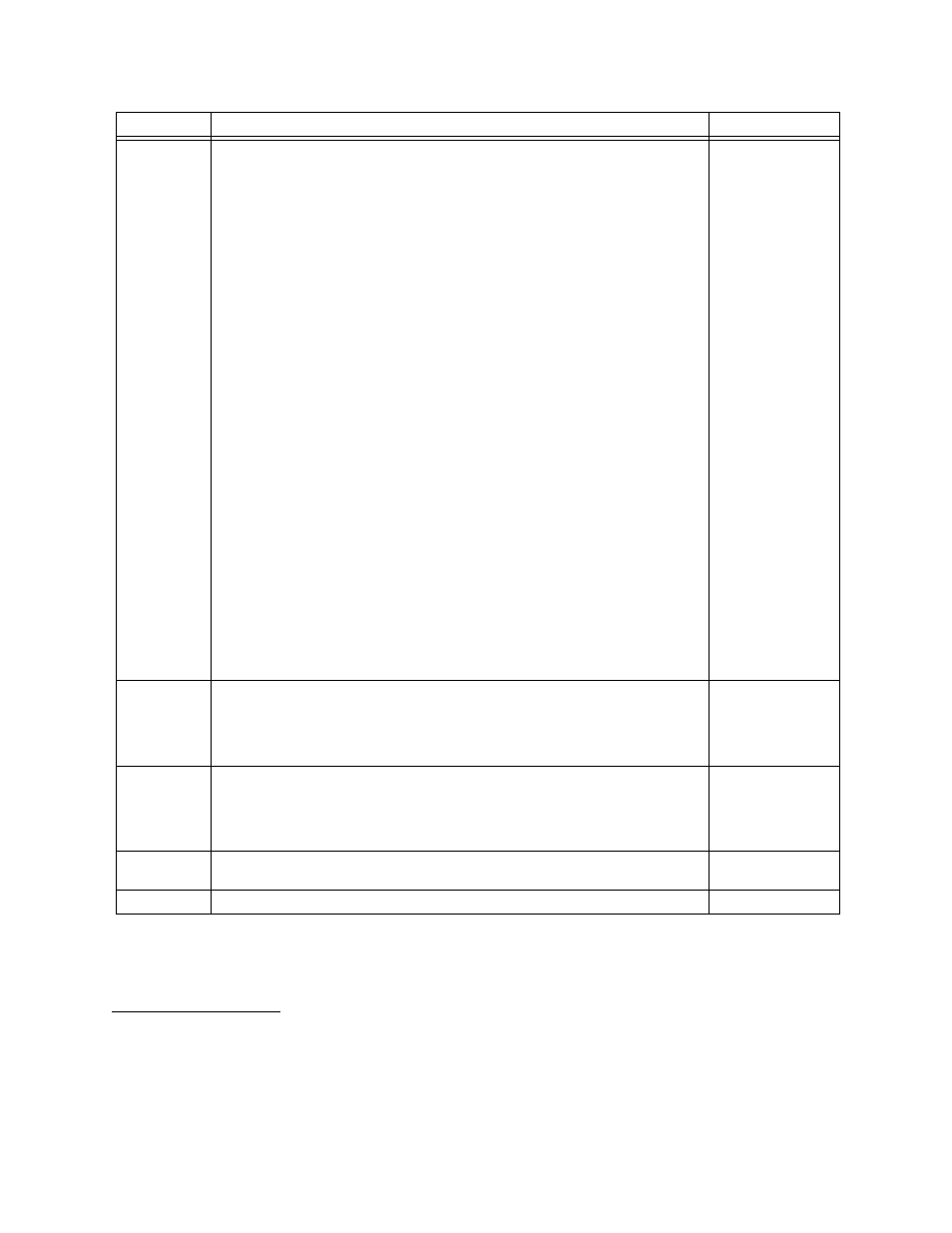Performance/ status menu, Performance/ status menu -14 – Verilink DCSU 2911 (880-502647-001) Product Manual User Manual
Page 36

DCSU T1 Craft Interface
3-14
Verilink DCSU 2911 User Manual
When finished configuring the network port diagnostics
parameters, enter X to return to the Main Menu.
Performance/
Status Menu
Use the Performance/Status Menu to monitor the functioning and
condition of the ports. The parameters in this menu count the
various problems that occur in a given period of time. Performance
information is logged in 15-minute intervals over a 24-hour period.
Tn
Test Pattern: Use this option to indicate one of the following options:
None: This option indicates that no test pattern will be used.
3 in 24: The 3-in-24 ONEs test pattern consists of three pulses in every
24-bit sequence (10001000 10000000 00000000). This stress test is
useful for testing circuits under extremely low density conditions. This
is mostly useful for T1 AMI.
QRSS: The Quasi-Random Signal Sequence limits the signal to a
maximum of 15 zeros in a row. These signals contain a medley of 20-
bit words (except for more than 15 consecutive 0s). It repeats every
1,048,575 bits. Also, it contains high density and low density
sequences, and sequences that change from low density to high
density and vice versa.
2N20-1: This pattern tests circuits for equalization and timing. It is the
same as QRSS, but without the 15 zeros restriction.
1/8: This pattern tests the ability of a circuit to support a pattern
having the minimum ones density (each byte has the sequence
1000000). It helps discover a timing recovery problem. This is mostly
useful for T1 AMI.
2N1 5-1: This pattern tests circuits for equalization and timing using
an alternate pattern for jitter testing. The pattern repeats every 32,757
bits.
All 0s: This pattern is composed entirely of framed zeros (00000000).
It should only be used in conjunction with B8ZS framing.
55 Octet: This Daly 55 octet pattern tests circuits for line, module,
and timing recovery. By rapidly transitioning from a long sequence of
low density octets to high density octets, the circuit is stress tested.
All 1s: This pattern is composed entirely of framed ones (11111111).
It stresses circuits by maximizing power consumption.
1) NONE
2) 3/24
3) QRSS
4) 2N20-1
5) 1/8
6) 2N15
-1
7) ALL 0’S
8) 55 OCTET
(Daly)
9) ALL 1’S
An
Send LLB BOP—Sends a request for a loopback in the 4K FDL (Facilities
Data Link) portion of ESF framing. Produces a line loopback in the
remote CSU that faces the local DCSU module. This loopback will not
work on a T1 facility that passes through a DACS unless the FDL
portion of the ESF framing is mapped through the DACS.
1) DEACTIVATE
2) ACTIVATE
Bn
Send PLB BOP—Sends a request for a loopback in the 4K FDL portion of
the ESF framing. Produces a loopback in the remote CSU that faces the
local DCSU module. This loopback will not work on a T1 facility that
passes through a DACS unless the FDL portion of the ESF framing is
mapped through the DACS.
1) DEACTIVATE
2) ACTIVATE
En
Reset Test Counter: This option resets the test counter to 0. The
counter is automatically reset when changing patterns.
X
Exit the Network Port Diagnostics Menu
Command
Description
Options